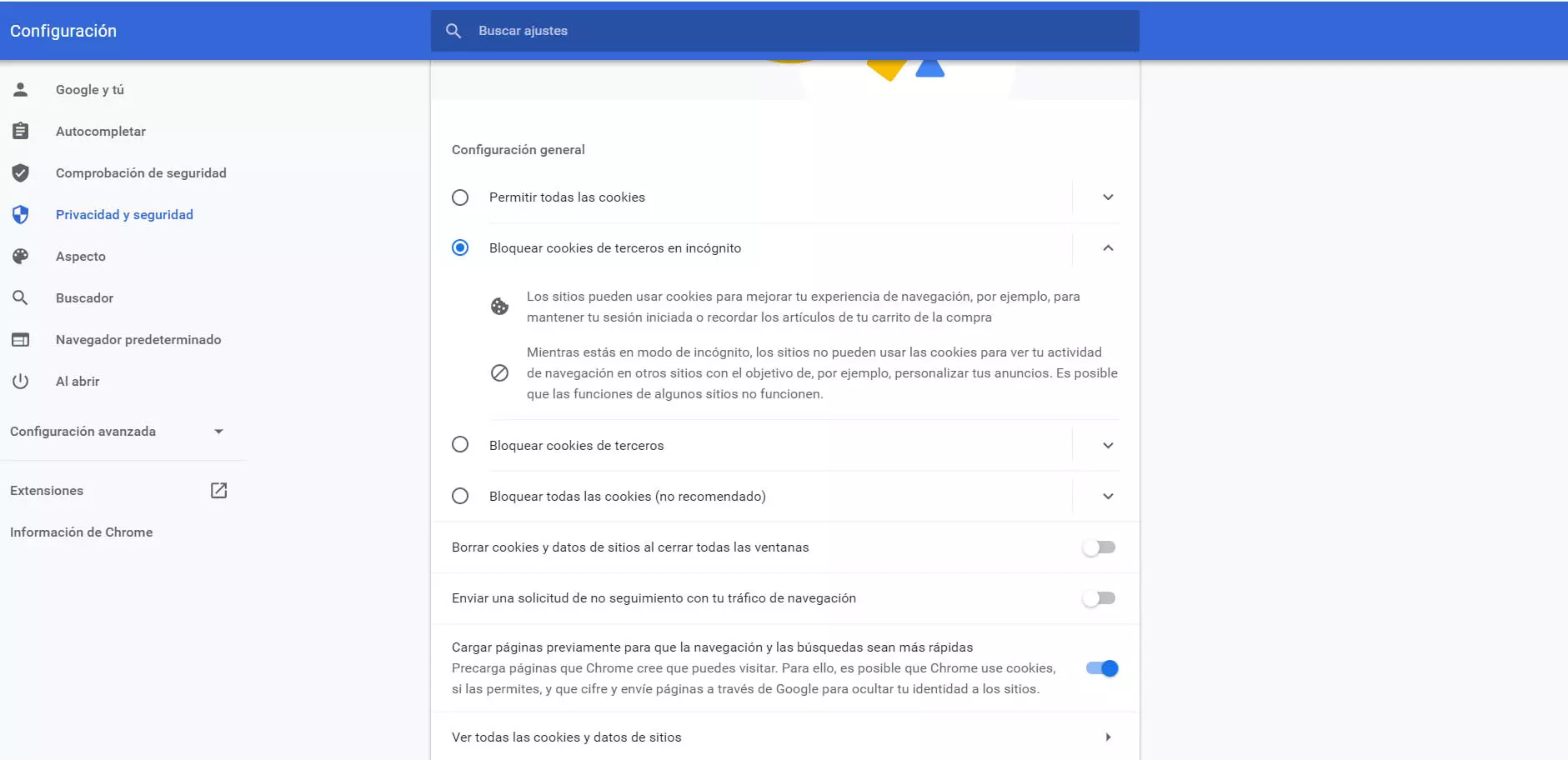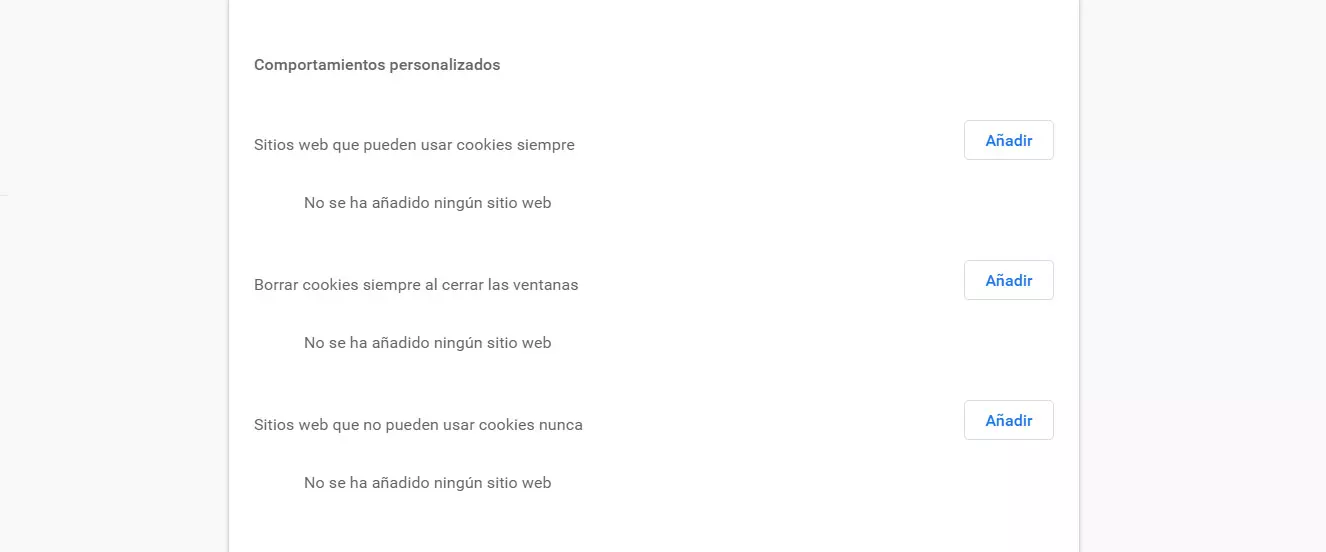
What are the cookies that we accept when browsing
There are different types of cookies and one of them are the small files that record information about the sites we visit, the settings, etc. This is stored in the browser itself. For example, let’s say we visit a page to see what the weather is going to do. It will record our location or the places we have searched for and the next time we enter it will appear directly to us.
But beyond what is related to setting, they can also store data. For example the information to log into a website or even when we enter a page to buy something and put products to pay. If we close the page and go back in, those products will still be there.
So are cookies useful? The truth is that it is information that is used for the very sites that we visit, but also at the user level to facilitate navigation, such as the examples that we have put. However, the pages are obliged to inform that they are going to store these cookies and users have to accept or reject.
Because the Privacy It is a very important factor for users, many are reluctant to this type of data being exposed. This can lead to them wanting to reject cookies when browsing. But the opposite case may occur in which a user has no problem accepting said cookies, but seeks not to have to accept each time he enters a page.
Extensions to reject all cookies automatically
To avoid this that we mention we can make use of extensions for Google Chrome. These add-ons that we can install for free in the browser will allow us to reject cookies automatically, without having to go one by one, canceling each web page we enter.
I don’t care about cookies
The I don’t care about cookies extension is one of the most popular for Google Chrome and its mission is to prevent messages from appearing to us so that we have to accept or reject cookies. What it does automatically is hit to refuse.
The way to use this plugin is very simple. The first thing to do is go to the official website and install it. There we can also see the information related to the program, reviews, etc.
Once we have the extension installed in Chrome, the icon in the toolbar and it will be up and running. It will start to block annoying cookie messages when we enter a new website or if we have previously cleared cookies.
Although we are talking about the Google Chrome browser, the truth is that I don’t care about cookies also works in others such as Mozilla Firefox, Opera or Edge.
Cookie Notice Blocker
Another totally free extension that we can install is Cookie Notice Blocker. As in the previous case, its function is to prevent messages from appearing to us so that we have to accept or reject cookies when we browse a website.
Its operation is similar. The first thing to do is go to its official website and install it. The extension icon will automatically appear in the browser bar and when entering a web page it will try not to see the typical messages to accept or reject cookies.
In this case, it is a complement that is exclusive to Google Chrome. It has good ratings from users and is another option that we can take into account when surfing the net without annoying messages appearing whenever we enter a new site.
Configure cookies in Google Chrome
We have seen a couple of options with which we can avoid cookies, or at least in part, when we navigate from Chrome. Now we are going to explain how we can configure the browser so that it deals in one way or another with third-party cookies when we surf the net.
To do this, the first thing we have to do is go to the menu at the top right. Once there you have to go to Setting and we entered Privacy & Security. Within this section different options will appear and, as we can see, by default the option of Block third-party cookies in incognito.
However, we can mark other options, such as Allow all cookies, Block third-party cookies or Block all cookies. Of course, it must be taken into account that cookies also serve to facilitate navigation, to save time when loading websites or remember our settings when we return to a page.
If we go further down the configuration page we can see that there is the possibility of customizing how the browser will act according to the website. We can add a list of certain websites that will always be able to use cookies. We can also create another list of pages for which cookies are deleted whenever we close the windows and another to add sites that can never use cookies.
In short, with these add-ons that we have shown we can prevent so many messages from appearing to accept or reject cookies. It is interesting if, for example, we browse in incognito mode or if we have it configured in such a way that we constantly delete cookies. We have also explained the different options that we can configure in the browser itself in relation to how it treats cookies and the lists that we can add.




